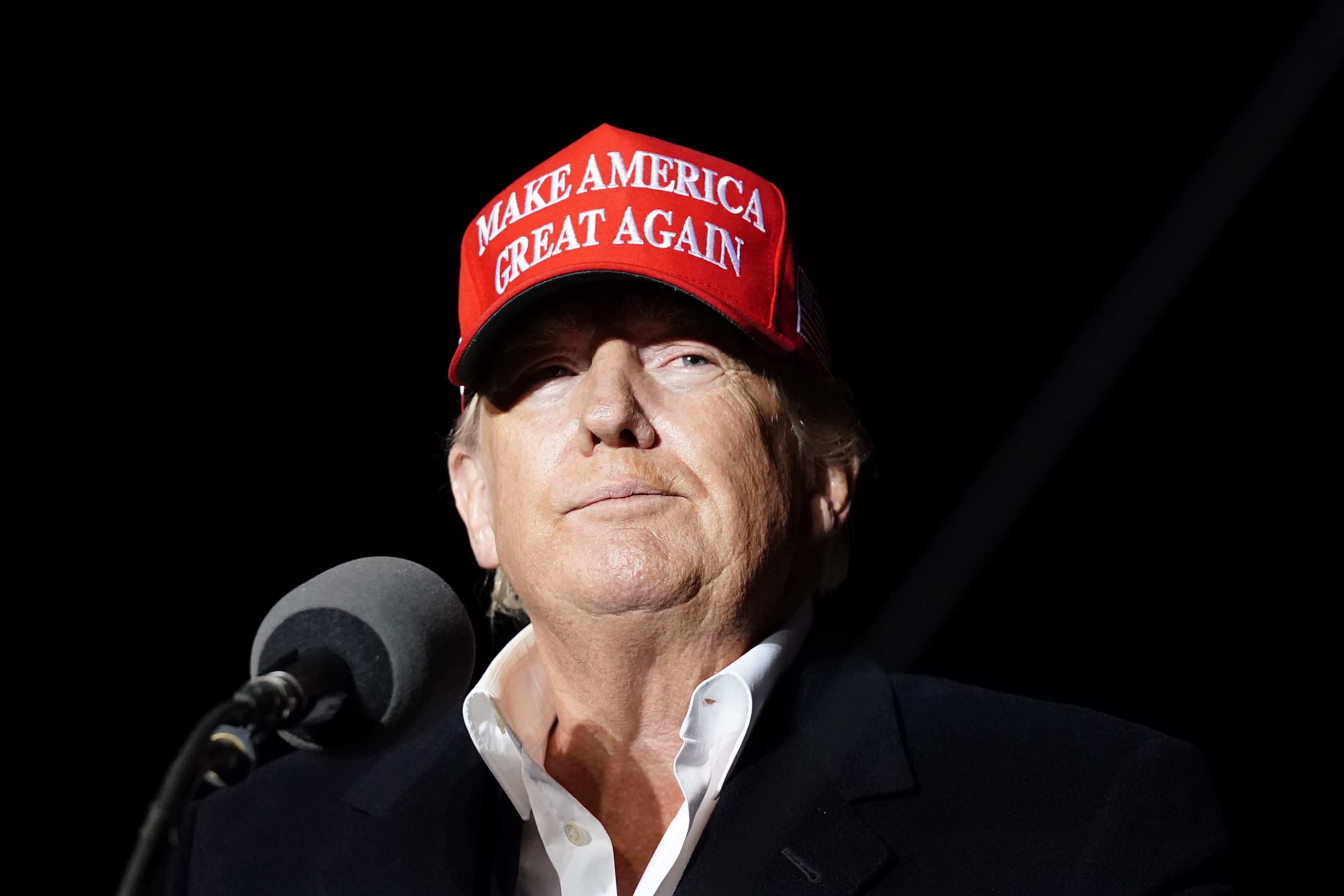
Former President Donald Trump pauses as he speaks at a rally Saturday, Jan. 15, 2022, in Florence, Ariz.
Ross D. Franklin | AP
The Department of Justice told a federal appeals court Wednesday that four pages of Trump White House records will be given to the select House committee investigating the January 6 Capitol riot later in the day, saying the documents are not covered by a temporary injunction barring release of many other Trump records.
But a lawyer for former President Donald Trump, in his own letter to the appeals court, said the release of the documents would violate that injunction. He also accused the DOJ of “misconduct” in trying “to conduct an end-run” against that court order.
The lawyer, Jesse Binnall, threatened to seek to have the DOJ held in contempt of court if it permits the National Archives to turn over the four pages to the select committee as planned early Wednesday evening.
The DOJ, however, says in its letter to the U.S. Court of Appeals for the District of Columbia Circuit that a decision by that court only temporarily bars the release of three tranches, or groups, of Trump White House records, and not the fourth tranches, which contains six pages sought by the panel.
Just four of the pages are planned to be turned over because two pages are similar to pages contained in the other three groups of documents.
The DOJ noted that despite President Joe Biden having given Trump 30 days to file a legal effort in court to block the release of that fourth set tranche, Trump has not done so.
Binnall’s letter says that Supreme Court should decide the status of those documents, not the DOJ.
The House committee has sought more than 700 pages of Trump White House records from the National Archives as part of its probe of the Jan. 6, 2021, riot by a mob of Trump supporters, who invaded the Capitol complex and disrupted the confirmation of Biden’s electoral victory by Congress.
That panel is, among other things, investigating the logistics of a Trump rally for supporters outside the White House, which was wrapping up just as the riot began, and communications by people inside the White House with Trump allies outside the White House in the days surrounding the attack.
Trump for weeks after the November election had falsely claimed that he actually won the election, and urged supporters to help him fight against
Despite Trump’s desire for him to do so, Biden refused to invoke executive privilege to prevent the release of the documents to the committee. Executive privilege empowers presidents to prevent the disclosure of certain kinds of documents related to their administration to outside parties.
Trump then sued to bar the committee from getting the records, saying he had authority as an ex-president to invoke executive privilege. A federal district court judge in Washington, D.C., ruled against his suit, as then did D.C.’s federal circuit appeals court.
The appeals court in its ruling said Trump failed to show any basis for this court to override President Biden’s judgment and the agreement and accommodations worked out between the Political Branches over these documents.
Trump in late December asked the Supreme Court to take the case.
So far, the Supreme Court has not ruled on Trump’s request to stay release of all the documents sought by the committee pending a broader decision on whether to hear his appeal of the lower courts’ rulings.




